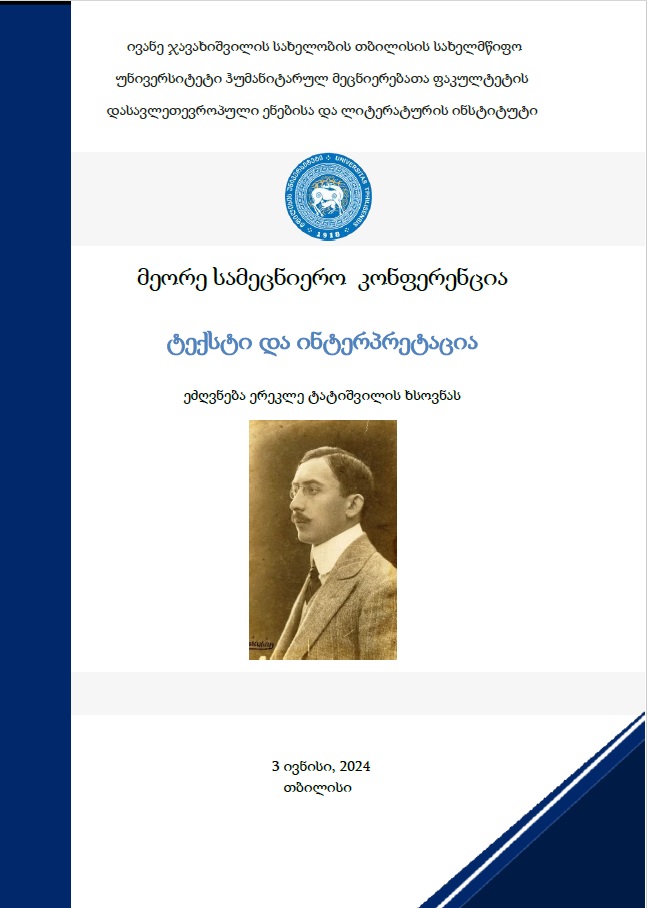Fear and Identity Crisis In Anna Burn’s Milkman
Keywords:
Anna Burns, fear, community, “Milkman”Abstract
The intense ethno-national crisis of 1960-1990s in Northern Ireland laid a foundation for both historic and artistic narratives. The violent opposition of protestant Unionists and Catholic Nationalists, The Troubles, claimed many lives of Irish people and took a toll on survivors’ mental health. This article explores the representation of fear, social pressure and identity crisis in Anna Burn’s novel “Milkman” through this political background.
Post Traumatic Stress Disorder, psychological oppression, living in a constant threat of death, violent explosions – this is the small list of issues that Northern Irish people had to endure for decades. All these made an irreversible damage to the unconscious of the community. Northern Irish author Anna Burns has first-hand experience of all these things and her Booker prize winning novel “Milkman” is based on this very experience, although her other books explore the similar themes of a close-knit community and young outcast protagonist.
“Milkman” debuted in 2018 and made Burns even more successful and prominent in literary circles. The novel is set in a 1970s unnamed town in Northern Ireland. The author narrates a story in first person of an 18-year-old girl and a much older paramilitary high-ranking officer, the Milkman, who takes an aggressive interest in this girl. Using their story, Burns condemns the indifference of a politically petrified community that chooses the easy way by accusing the girl instead. Burns criticizes a society in which every individual can be accused of a crime they didn’t even commit. Here comes the socio-feminist discourse, the crucial part of every narrative which involves sexual harassment.
The main themes of the novel include the effects of living in fear, particularly the broken personal boundaries and erased sense of stability and security. Burns depicts the psychological portrait of a society governed by the unwritten rules where breaking them leads to an inevitable punishment. Spreading rumors and excessive interest in sexual matters are common characteristics of overly puritanical society in which one mistake makes you irredeemable. This is what happened to the protagonist – the girl who was only noticeable for her reading habit became the scapegoat. Due to this there are various feminist-dystopian interpretations of the novel. Burns proves that the cruel treatment from the society makes people emotionally numb as they rob themselves from the right of telling the truth and defending themselves.
Identity crisis is emphasized from the author’s side by not giving her characters personal names. They are always referred to by their occupation or kinship names, such as milkman, french teacher, middle sister, first brother etc. This points to the fact that in this society nobody values individuality, only your relation to others is respected.
Anna Burns explores the results of political and social issues that profoundly affect an individual's life. She harshly criticizes the norms for what being a good community member means. The novel focuses on the nuances of psychological and anthropological factors that eventually become the identity markers.
References:
Burns, A., (2023). Milkman. Tbilisi: Karchkhadze Publishing
Downes, D. (2021). Anna Burns’ Milkman. Studies: An Irish Quarterly Review, 110(438), 231–240. https://www.jstor.org/stable/10.35939/studiesirishrev.110.438.0231
Eco, U,. (2023). Inventing the Enemy and Other Essays. Tbilisi: Diogene
Fuchs, A. (2022). The Translocalisation of Place: Sectarian Neighbourhoods, Boundaries and Transgressive Practices in Anna Burns’ Belfast. In S. Ehrig, B. C. Jung, & G. Schaffer (Eds.), Exploring the Transnational Neighbourhood: Perspectives on Community-Building, Identity and Belonging (pp. 139–160). Leuven University Press. https://doi.org/10.2307/j.ctv30dxwr8.9
Jenkinson, R. (2021). The Troubles with Northern Irish literature. Fortnight, 483, 30–32. https://www.jstor.org/stable/27176227

